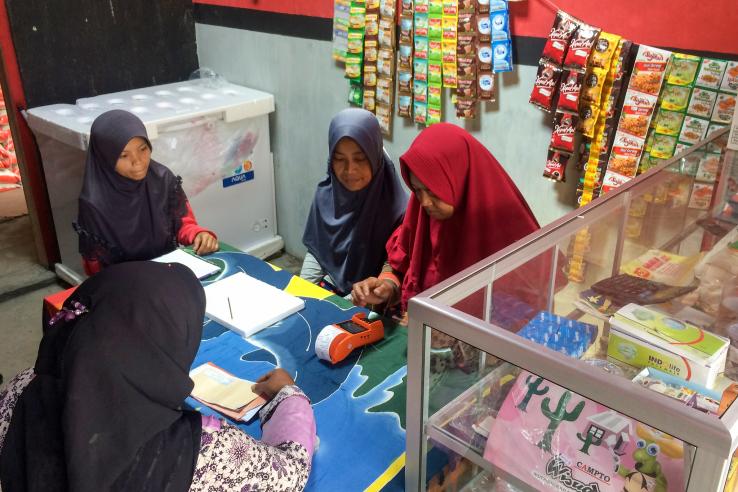J-PAL Southeast Asia at 10: Finance

Competition in the Branchless Banking Agent Market: Effects and Strategic Responses: Branchless banking is rapidly expanding in Indonesia, providing millions of Indonesians residing in villages with access to financial services. Current and former J-PAL affiliated professors Erika Deserranno (Northwestern) and Firman Witoelar (Australian National University), and their coauthors Gianmarco Leon-Ciliotta (Universitat Pompeu Fabra), Martin Kanz (World Bank), and Daniel Gottlieb (London School of Economics (LSE), are collaborating with one of Indonesia's largest state-owned banks to design a randomized evaluation and attempt to comprehend how branchless banking agents, local individuals who support communities without access to banks with access to financial products, respond to competition by selecting a different competition strategy. The results of the pilot study suggest that trust and reputation play an important role in client acquisition and that measures to enhance customer trust and agent reputation have the potential to increase the bank's clientele and foster financial inclusion.
The Impact of Incentives and Transparency on Usage of New Financial Products in Indonesia: In another study, current and former J-PAL affiliated researchers Erika Deserranno (Northwestern) and Firman Witoelar (Australian National University), and their coauthor Gianmarco Leon-Ciliotta (Universitat Pompeu Fabra), conducted a randomized evaluation in East Java, Indonesia, to evaluate the impact of providing incentives and varying the level of transparency on the take-up of branchless banking service in Indonesia. The findings indicate that larger incentives caused an increase in take-up, but only when the incentives were not publicized among the community. When incentives are made public, higher incentives instead have no effect on take-up, despite greater effort by branchless banking agents in encouraging communities without access to banks to use financial products.
Status Goods: Experimental Evidence from Platinum Credit Cards: Current and former J-PAL affiliated researchers Stefano Fiorin (Bocconi University), Bruno Ferman (São Paulo School of Economics), Gautam Rao (Harvard), and Leonardo Bursztyn (University of Chicago) and their coauthor Martin Kanz (World Bank) partnered with a large bank in Indonesia that markets platinum credit cards to high-income customers to design a series of randomized evaluations to understand the demand for status goods. The findings show that a substantial part of the demand for the platinum card is explained by the desire to own the prestigious card itself, beyond the tangible benefits and services it comes with.*
Moral Incentives to Increase Credit Card Repayment in Indonesia: Current and former J-PAL affiliated researchers Leonardo Bursztyn (University of Chicago) and Stefano Fiorin (Bocconi University)), and their coauthors (Martin Kanz (World Bank) and Daniel Gottlieb (LSE), partnered with a large Indonesian Islamic bank in Indonesia to evaluate the impact of sending moral appeals in reminder text messages to late-paying credit card holders. The research finds that messages stating that non-repayment of debts by someone who is able to repay is an injustice increased the number of clients meeting minimum payments. Moreover, a credit reputation quote emphasizing the consequences of non-repayment was another effective approach to encourage customers to pay their credit card bills.*
Financial Literacy, Access to Finance, and the Effect of Being Banked in Indonesia: J-PAL affiliated researcher Shawn Cole (Harvard) and coauthors Thomas Sampson (LSE) and Bilal Zia (World Bank) worked with Bank Rakyat Indonesia and the Microfinance Innovation Center for Resources and Alternatives to measure the impact of incentives and financial education on savings account take-up. The results indicate that the financial education program was not an effective tool for promoting the use of bank accounts, but modest financial subsidies did increase the share of households that opened a formal savings account.*
*Not Implemented by J-PAL SEA (i.e., either implemented independently by researchers, partner organizations, or by Innovations for Poverty Action Philippines).